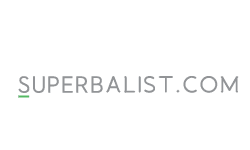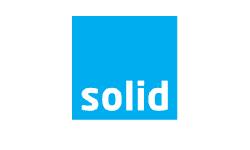SEO Audit Package
Our comprehensive audits are the key drivers for your overall website health.
Increase organic traffic, leads, sales and ROI - It all starts here.

Standard
Elevate your website to
achieve higher visibility
- Technical Audit - Full website
- Site SEO strategy included
- Full Audit Report
- Receive report in 45 Days
TRUSTED BY GLOBAL BRANDS


















We are driven by Results
1.8+ Billion
Organic Sessions
1.5+ Billion
Organic Clicks
800+ Million
Users
50+
Awards
1.8+ Billion
Organic Sessions
1.5+ Billion
Organic Clicks
800+ Million
Users
50+
Awards
What happens after you request for a proposal?
01
Requirement Call
Industry-specific experts are assigned to conduct a virtual meeting with your team. This intro call focuses on understanding your current challenges, objectives, and key performance indicators (KPIs). Through this interactive session, our experts gain valuable insights.
02
Approach
We delve into a deep competitor analysis and conduct extensive research of your industry. Drawing upon our years of experience, we merge these findings to formulate a strategic plan. This plan leverages our expertise and insights to develop a comprehensive strategy that aligns with your business objectives and maximizes your chances of success.
03
Proposal
The proposal includes a detailed roadmap, clearly outlining recommended activities and KPIs based on the client’s goals. We explain you the strategies and techniques proposed. The proposal also focuses on defining specific KPIs for measuring success. Feedback and adjustments are encouraged to ensure the proposal meet your needs. Once finalized, the proposal forms the basis for the formal agreement between us.
04
Kick-off
We facilitate your onboarding process, introducing you to your dedicated team. During this kickoff meeting, you have the opportunity to meet the professionals who will be working closely with you. Additionally, we provide you with a clear roadmap, outlining the step-by-step plan for moving forward. This roadmap ensures everyone involved is on the same page and enables a smooth and efficient project implementation.
Industry-specific experts are assigned to conduct a virtual meeting with your team. This requirement call focuses on understanding your current challenges, objectives, and key performance indicators (KPIs). Through this interactive session, our experts gain valuable insights.
We delve into a deep competitor analysis and conduct extensive research of your industry. Drawing upon our years of experience, we merge these findings to formulate a strategic plan. This plan leverages our expertise and insights to develop a comprehensive strategy that aligns with your business objectives and maximizes your chances of success.
The proposal includes a detailed roadmap, clearly outlining recommended activities and KPIs based on the client’s goals. We explain you the strategies and techniques proposed. The proposal also focuses on defining specific KPIs for measuring success. Feedback and adjustments are encouraged to ensure the proposal meet your needs. Once finalized, the proposal forms the basis for the formal agreement between us.
We facilitate your onboarding process, introducing you to your dedicated team. During this kickoff meeting, you have the opportunity to meet the professionals who will be working closely with you. Additionally, we provide you with a clear roadmap, outlining the step-by-step plan for moving forward. This roadmap ensures everyone involved is on the same page and enables a smooth and efficient project implementation.
hear from our clients


Luke Jedeikin
Co-CEO / CMO at Superbalist

Read More

THE ICONIC
Head of SEO at THE ICONIC

Given such a complex requisite, we believe Infidigit has done splendid job for our website. 5 stars to the Infidigit SE0 team for their continuous efforts. Were extremely happy with the results, and we hope to see more from our collaboration.


James Hacking
Founder of Socially Powerful

Read More
Read our growth stories
PLATFORMS WE OPTIMISE

Our SEO SERVICES PACKAGES


Ecommerce SEO Packages
Ecommerce SEO is the process of optimizing a website to rank higher in search engine results, attract more traffic, and ultimately encourage purchases. It involves optimizing product pages, categories, and the overall structure of the website to ensure that it is search-engine friendly.
SEO Audits Packages

SEO audit is an evaluation of a website’s current search engine optimization practices and performance. It involves analyzing various technical, on-page, and off-page factors to identify any issues that might be a cause for concern or preventing your website from ranking higher on SERPs.


Enterprise SEO Packages
Enterprise SEO is the process of optimizing large websites, often with thousands of pages, to rank higher in search engine results. It requires a strategic and scalable approach to SEO, taking into account the unique requirements of large websites, including technical challenges and complex organizational structures.
Local SEO
Local SEO is the process of optimizing a business’s online presence for local search queries. It involves claiming and verifying your business’s listing on local directories, such as Google My Business, and optimizing your website for local keywords.

Start your growth journey
Whether you’re new, growing or established. We’ll help you drive organic traffic that generates revenue for you.
Compare all features
|
Standard Get Proposal |
||
Content Audit |
||
Hidden content check |
Hidden content detection and removal enhance user experience and search engine visibility. |
|
Identifying “thin” pages |
Identification and addressing of thin or low-quality content ensure value for users and search engines. |
|
Identifying duplicated pages |
Resolution of duplicate content issues boosts visibility of unique and relevant content while avoiding penalties. |
|
Indentifying under-optimized landing pages |
Identification of pages lacking keyword optimization, meta tags, and on-page elements, along with improvement suggestions. |
|
Indentifying pages with low click through rates |
Suggestions for optimizing low CTR pages to attract organic traffic and enhance visibility. |
|
Robots.txt Configuration Audit |
||
Robots.txt file check |
Proper configuration of robots.txt enables search engines to crawl and index desired pages on your website. |
|
Checking XML sitemap declaration in Robots.txt |
Declaration of XML sitemap in robots.txt ensures seamless website crawling and indexing by search engines. |
|
Identifying Errors in robots.txt file |
Effective control of search engine access by identifying and resolving errors in the robots.txt file. |
|
Identifying pages that should be blocked using robots.txt |
Identification and resolution of errors or syntax issues in the robots.txt file for better search engine control. |
|
Checking whether robots.txt file is uploaded in the correct directory |
Uploading the file to the correct server location allows search engines to access and follow its instructions. |
|
Checking whether records are grouped improperly |
Reviewing and categorizing records to provide clear instructions for search engine bots. |
|
Auditing & Recommending relevant Wildcards |
Assessing wildcard directives and recommending optimal usage to regulate specific areas of the website. |
|
Differentiate pages that require noindex tag/ should be blocked in robots.txt |
Identification of 'noindex' pages and blocking them in robots.txt if necessary to safeguard against search engine crawling. |
|
XML & HTML Sitemap Audit |
||
Sitemap.xml check |
|
|
Checking whether XML Sitemap is submitted to Google or Bing |
Submission of XML sitemap to Google and Bing ensures indexing and visibility of website pages. |
|
Identifying Errors in XML sitemap |
Identification and rectification of errors or issues within the XML sitemap that may hinder search engine crawling and indexing. |
|
Finding non-200 pages in sitemap |
Detection of non-200 status code pages in the XML sitemap reveals concerns related to crawlability and accessibility. |
|
Finding non-canonical URLs in sitemap |
Uncovering non-canonical URLs in the XML sitemap helps prevent duplicate content indexing. |
|
Finding PPC pages in sitemap |
Exclusion of PPC landing pages from the XML sitemap improves indexing and relevancy. |
|
Checking XML Sitemap size |
Evaluation of the size of the XML sitemap to ensure compliance with search engine guidelines and optimize crawling efficiency. |
|
Checking whether blocked pages are declared in sitemap |
Ensuring an accurate XML sitemap to prevent indexing of sensitive or unnecessary content. |
|
Checking whether orphaned pages are declared in sitemap |
Discovery of orphaned pages in the XML sitemap ensures their inclusion by search engines, identifying pages not linked from others. |
|
Recommendation for Specialty Sitemaps |
Enhancement of content visibility through specialized sitemaps, such as video and image sitemaps, along with indexing suggestions. |
|
Recommending categorized structure for XML Sitemap |
Optimization of XML sitemap with structured categorization for better organization and management. |
|
Structured Data/Schema Markup Audit |
||
Checking existing Structured Data on pages (JSON-LD, Microdata & RDFa) |
The presence and accuracy of structured data markup (such as JSON-LD, Microdata, and RDFa) on your website's pages can be assessed to enhance search engine understanding. |
|
Identifying errors in Structured Data |
Errors in the implementation of structured data can be identified and fixed to ensure error-free schema markup. |
|
Structured markup isn’t resulting in rich snippets |
The impact of structured data on search results can be evaluated, and recommendations for improvement can be provided. |
|
Identifying pages that require structured data |
Pages or content that can benefit from structured data implementation can be identified, resulting in enhanced search engine visibility. |
|
Recommending Schemas that need to be added on pages |
Recommendations can be made regarding schemas and structured data to improve search engine comprehension of your pages. |
|
Image/Video SEO Audit |
||
Collating list of large images |
Identifying and compiling a list of large images can help optimize website performance. |
|
Finding images with no or irrelevant ALT text |
Optimizing images by providing ALT text or updating irrelevant ALT text improves search engine understanding. |
|
Image sitemap check |
Ensuring the completeness and accuracy of the image sitemap facilitates search engine crawling and indexing. |
|
Checking visibility for image search |
Optimizing image metadata and relevance enhances the visibility of images in image search results. |
|
Creation of Image sitemap |
Creating an image sitemap improves the discoverability of images by search engines. |
|
Checking whether images are served through a CDN |
Verifying if images are served through a Content Delivery Network (CDN) improves loading speed and performance. |
|
Video sitemap check |
Checking the video sitemap for proper indexing and inclusion of video content in search results. |
|
Checking markup for videos |
Reviewing video markup for proper implementation and compatibility with search engines. |
|
Identifying whether video pages lack text |
Identifying video pages lacking text content and considering the addition of relevant text improves SEO performance. |
|
Creation Video sitemap |
Creating a video sitemap enhances the indexing and visibility of video content by search engines. |
|
Titles & Meta Description Audit |
||
Pages with missing titles |
Improving the optimization of page titles enhances search engine visibility. |
|
Pages with long titles |
Improving the optimization of page titles enhances search engine visibility. |
|
Pages with short titles |
Improving the optimization of page titles enhances search engine visibility. |
|
Pages with missing meta descriptions |
Enhancing the optimization of meta descriptions improves search engine visibility. |
|
Pages with long meta descriptions |
Enhancing the optimization of meta descriptions improves search engine visibility. |
|
Pages with short meta descriptions |
Enhancing the optimization of meta descriptions improves search engine visibility. |
|
Duplicate page titles |
Eliminating duplicate page titles ensures uniqueness and clarity. |
|
Odd capitalizations in titles |
Ensuring consistent capitalization in titles for a cohesive presentation. |
|
Odd capitalizations in descriptions |
Ensuring consistent capitalization in descriptions for a cohesive presentation. |
|
Pages with non-descriptive titles |
Enhancing the relevance and click-through rates of pages with non-descriptive titles. |
|
Identifying whether descriptions have a powerful calls to action |
Evaluating meta descriptions for compelling calls to action and messaging. |
|
PageSpeed Audit |
||
Checking Page load times of top landing pages |
The performance of the website can be improved by measuring page load times for top landing pages. |
|
Checking Page load times of money pages |
Ensuring fast and efficient delivery of key content by assessing page load times for money pages. |
|
Examining Page Caching mechanism |
Enhancing website speed and reducing server load by examining the page caching mechanism. |
|
Checking Page Size |
Optimizing loading speed and overall website performance by checking page size. |
|
Check whether code is using Gzip compression |
Reducing file sizes and improving page load times through the utilization of Gzip compression. |
|
Inline CSS check |
Optimizing code and improving rendering speed through an inline CSS check. |
|
Indetifying whether minification of JavaScript or CSS is required |
Optimizing code efficiency and page load times by identifying the need for minification of JavaScript or CSS. |
|
Identifying Core Web Vitals metrics for pages |
Identifying areas for improvement in user experience by evaluating Core Web Vitals metrics for pages. |
|
Indentifying HTTP requests |
Reducing server load and improving page load times by identifying and optimizing HTTP requests. |
|
Inline JavaScript check |
Optimizing code and improving website performance through an inline JavaScript check. |
|
URL/Folder Structure Audit |
||
Auditing Canonical tags |
An audit of Canonical tags is conducted to consolidate URLs correctly and prevent duplicate content issues. |
|
Redirection checks for non www and .html pages |
Checks are performed to ensure consistent redirection of non-www and .html pages, maintaining a uniform URL structure. |
|
Checking URLs through both secure and non-secure protocols |
The accessibility and indexing of URLs are verified through both secure and non-secure protocols. |
|
Checking whether URLs resolve to a single case |
URLs are ensured to resolve to a single case to avoid potential duplicate content and indexing challenges. |
|
Checking if trailing slashes are resulting in duplicate content |
Duplicate content concerns arising from trailing slashes are addressed to maintain a clean URL structure. |
|
Checking if parameter URLs are resulting in duplicate content |
Duplicate content problems caused by parameter URLs are identified and resolved to enhance SEO performance. |
|
Auditing Page indexation |
A comprehensive audit of page indexation is conducted to ensure that all relevant pages are appropriately indexed by search engines. |
|
Mobile Friendliness Audit |
||
Checking whether site elements are mobile-friendly |
Enhancing the mobile user experience and improving SEO performance involves ensuring that site elements are mobile-friendly. |
|
Checking Bounce rate of mobile visitors |
Analyzing the bounce rate of mobile visitors helps identify potential issues and optimize user engagement. |
|
JavaScript and/or CSS are blocked |
Verifying if JavaScript and/or CSS are blocked ensures proper rendering and indexing by search engines. |
|
Auditing Vary HTTP headers |
Conducting an audit of Vary HTTP headers optimizes caching and improves website performance. |
|
Auditing rel="alternate" and rel="canonical" tags |
Auditing rel="alternate" and rel="canonical" tags ensures proper handling of mobile and desktop versions for better search engine performance. |
|
Mobile sitemap check |
Checking the mobile sitemap for completeness and accuracy facilitates search engine crawling and indexing. |
|
Identifying mobile-only 404s |
Identifying mobile-only 404 errors ensures a seamless user experience on mobile devices. |
|
Identifying whether interstitials on mobile disrupt mobile browsing |
Evaluating interstitials on mobile prevents disruptions in mobile browsing and improves overall usability. |
|
Identifying irrelevant cross links |
Identifying and eliminating irrelevant cross-links enhances user navigation and SEO relevance. |
|
Auditing mobile site for unusual breakpoints |
Auditing the mobile site for unusual breakpoints ensures consistent design and functionality. |
|
Checking whether mobile app content is indexed correctly |
Verifying the correct indexing of mobile app content improves visibility in mobile search results. |
|
Checking zoom functionality on mobile |
Checking the zoom functionality on mobile devices ensures an optimal user experience and accessibility. |
|
Checking disparity between desktop and mobile version |
Identifying and addressing any disparities between the desktop and mobile versions of the website is important for consistency. |
|
Checking for Navigation Mismatch on Mobile and Desktop |
Checking for navigation mismatches between mobile and desktop versions maintains a consistent user journey. |
|
Checking for Content Mismatch on Mobile and Desktop |
Identifying and addressing content mismatches between mobile and desktop versions improves the user experience and SEO consistency. |
|
Rendering Techniques and Suggestions |
||
Identify multiple templates on the website and checking crawl issues |
To enhance SEO performance, it is important to identify multiple templates on the website and address crawl issues. |
|
Identify Index Bloat Issues |
||
Internal Site search pages getting indexed |
Preventing duplicate content issues involves excluding internal site search pages from being indexed. |
|
Staging site / any other version of the website indexed |
It is crucial to ensure that staging sites or alternate versions of the website are not indexed by search engines. |
|
Unnecessary/Irrerelavant pages geting indexed |
Improving website relevance can be achieved by eliminating unnecessary or irrelevant pages from being indexed. |
|
Footer Audit & Recommendation |
An audit of the footer should be conducted to identify optimization opportunities and provide recommendations. |
|
Internal Linking Structure Audit & Recommendaton |
Evaluating the internal linking structure and offering recommendations for improvement can contribute to better SEO performance. |
|
Redirection Checks |
Checking and optimizing redirections is essential to maintain proper website flow and prevent broken links. |
|
Top Navigation & Breadcrumbs Audit & Recommendation |
The top navigation and breadcrumbs should be audited for usability, and recommendations for improvement should be provided. |
|
In-depth Backlink Profile Audit |
Conducting an in-depth analysis of the backlink profile can help identify areas for improvement in SEO. |
|
Checking Implementation of Tracking Codes |
Verifying the proper implementation of tracking codes ensures accurate data collection and analysis. |
|
Pagination/Infinite Scroll Audit |
Auditing pagination and infinite scroll functionality is important for better user experience and indexability. |
|
HTTPS Check & Server-level Configuration Audit |
A thorough check of HTTPS implementation and server-level configurations is necessary for security and SEO compliance. |
|
Accelerated Mobile Pages (AMP) & Progressive Web Apps (PWA) Audit |
Optimizing Accelerated Mobile Pages (AMP) and Progressive Web Apps (PWA) can enhance mobile performance. |
|
Detailed Recommendation for improving Core Web Vitals metrics |
Providing detailed recommendations for improving Core Web Vitals metrics, with a focus on speed and user experience, is essential. |
|
Site Architecture Audit |
Conducting a comprehensive site architecture audit and suggesting improvements can improve crawlability and indexability. |
|
Crawl Rate Optimization Audit |
Optimizing the crawl rate ensures that search engines can efficiently access and index website content. |
|
DOM Structure Audit |
An audit of the DOM structure should be performed to identify optimizations for efficient rendering and better performance. |
|
Reports Included |
||
SEO Scorecard |
SEO scorecard is generated to assess website performance and identify areas for improvement. |
|
In-depth Backlink Audit Report |
An in-depth backlink audit report is provided to analyze the quality and quantity of backlinks. |
|
Audit Report Version |
The audit report version outlines SEO findings and recommendations for optimization. |
Spreadsheet + Document Version |
SEO Strategic recommendations |
Strategic recommendations are offered to improve SEO performance and organic visibility. |
4 Points |
Audit implementation explanation |
A detailed explanation of the audit implementation process and its impact on SEO is provided. |
8 hours |
Time Duration |
Receive report in 45 Days |
|
Note: Additional Audit explanation support for engineering team can be provided at additonal cost |
$500 for 15 hours (Min 1 hour duration meetings) To be utilized in two months |
- Content Audit
- Hidden content check
- Identifying “thin” pages
- Identifying duplicated pages
- Indentifying under-optimized landing pages
- Indentifying pages with low click through rates
- Robots.txt Configuration Audit
- Robots.txt file check
- Checking XML sitemap declaration in Robots.txt
- Identifying Errors in robots.txt file
- Identifying pages that should be blocked using robots.txt
- Checking whether robots.txt file is uploaded in the correct directory
- Checking whether records are grouped improperly
- Auditing & Recommending relevant Wildcards
- Differentiate pages that require noindex tag/ should be blocked in robots.txt
- XML & HTML Sitemap Audit
- Sitemap.xml check
- Checking whether XML Sitemap is submitted to Google or Bing
- Identifying Errors in XML sitemap
- Finding non-200 pages in sitemap
- Finding non-canonical URLs in sitemap
- Finding PPC pages in sitemap
- Checking XML Sitemap size
- Checking whether blocked pages are declared in sitemap
- Checking whether orphaned pages are declared in sitemap
- Recommendation for Specialty Sitemaps
- Recommending categorized structure for XML Sitemap
- Structured Data/Schema Markup Audit
- Checking existing Structured Data on pages (JSON-LD, Microdata & RDFa)
- Identifying errors in Structured Data
- Structured markup isn’t resulting in rich snippets
- Identifying pages that require structured data
- Recommending Schemas that need to be added on pages
- Image/Video SEO Audit
- Collating list of large images
- Finding images with no or irrelevant ALT text
- Image sitemap check
- Checking visibility for image search
- Creation of Image sitemap
- Checking whether images are served through a CDN
- Video sitemap check
- Checking markup for videos
- Identifying whether video pages lack text
- Creation Video sitemap
- Titles & Meta Description Audit
- Pages with missing titles
- Pages with long titles
- Pages with short titles
- Pages with missing meta descriptions
- Pages with long meta descriptions
- Pages with short meta descriptions
- Duplicate page titles
- Odd capitalizations in titles
- Odd capitalizations in descriptions
- Pages with non-descriptive titles
- Identifying whether descriptions have a powerful calls to action
- PageSpeed Audit
- Checking Page load times of top landing pages
- Checking Page load times of money pages
- Examining Page Caching mechanism
- Checking Page Size
- Check whether code is using Gzip compression
- Inline CSS check
- Indetifying whether minification of JavaScript or CSS is required
- Identifying Core Web Vitals metrics for pages
- Indentifying HTTP requests
- Inline JavaScript check
- URL/Folder Structure Audit
- Auditing Canonical tags
- Redirection checks for non www and .html pages
- Checking URLs through both secure and non-secure protocols
- Checking whether URLs resolve to a single case
- Checking if trailing slashes are resulting in duplicate content
- Checking if parameter URLs are resulting in duplicate content
- Auditing Page indexation
- Mobile Friendliness Audit
- Checking whether site elements are mobile-friendly
- Checking Bounce rate of mobile visitors
- JavaScript and/or CSS are blocked
- Auditing Vary HTTP headers
- Auditing rel="alternate" and rel="canonical" tags
- Mobile sitemap check
- Identifying mobile-only 404s
- Identifying whether interstitials on mobile disrupt mobile browsing
- Identifying irrelevant cross links
- Auditing mobile site for unusual breakpoints
- Checking whether mobile app content is indexed correctly
- Checking zoom functionality on mobile
- Checking disparity between desktop and mobile version
- Checking for Navigation Mismatch on Mobile and Desktop
- Checking for Content Mismatch on Mobile and Desktop
- Rendering Techniques and Suggestions
- Identify multiple templates on the website and checking crawl issues
- Identify Index Bloat Issues
- Internal Site search pages getting indexed
- Staging site / any other version of the website indexed
- Unnecessary/Irrerelavant pages geting indexed
- Footer Audit & Recommendation
- Internal Linking Structure Audit & Recommendaton
- Redirection Checks
- Top Navigation & Breadcrumbs Audit & Recommendation
- In-depth Backlink Profile Audit
- Checking Implementation of Tracking Codes
- Pagination/Infinite Scroll Audit
- HTTPS Check & Server-level Configuration Audit
- Accelerated Mobile Pages (AMP) & Progressive Web Apps (PWA) Audit
- Detailed Recommendation for improving Core Web Vitals metrics
- Site Architecture Audit
- Crawl Rate Optimization Audit
- DOM Structure Audit
- Reports Included
- SEO Scorecard
- In-depth Backlink Audit Report
- Audit Report Version
- SEO Strategic recommendations
- Audit implementation explanation
- Time Duration
- Note: Additional Audit explanation support for engineering team can be provided at additonal cost
-
Hidden content detection and removal enhance user experience and search engine visibility.
Identification and addressing of thin or low-quality content ensure value for users and search engines.
Resolution of duplicate content issues boosts visibility of unique and relevant content while avoiding penalties.
Identification of pages lacking keyword optimization, meta tags, and on-page elements, along with improvement suggestions.
Suggestions for optimizing low CTR pages to attract organic traffic and enhance visibility.
Proper configuration of robots.txt enables search engines to crawl and index desired pages on your website.
Declaration of XML sitemap in robots.txt ensures seamless website crawling and indexing by search engines.
Effective control of search engine access by identifying and resolving errors in the robots.txt file.
Identification and resolution of errors or syntax issues in the robots.txt file for better search engine control.
Uploading the file to the correct server location allows search engines to access and follow its instructions.
Reviewing and categorizing records to provide clear instructions for search engine bots.
Assessing wildcard directives and recommending optimal usage to regulate specific areas of the website.
Identification of 'noindex' pages and blocking them in robots.txt if necessary to safeguard against search engine crawling.
Submission of XML sitemap to Google and Bing ensures indexing and visibility of website pages.
Identification and rectification of errors or issues within the XML sitemap that may hinder search engine crawling and indexing.
Detection of non-200 status code pages in the XML sitemap reveals concerns related to crawlability and accessibility.
Uncovering non-canonical URLs in the XML sitemap helps prevent duplicate content indexing.
Exclusion of PPC landing pages from the XML sitemap improves indexing and relevancy.
Evaluation of the size of the XML sitemap to ensure compliance with search engine guidelines and optimize crawling efficiency.
Ensuring an accurate XML sitemap to prevent indexing of sensitive or unnecessary content.
Discovery of orphaned pages in the XML sitemap ensures their inclusion by search engines, identifying pages not linked from others.
Enhancement of content visibility through specialized sitemaps, such as video and image sitemaps, along with indexing suggestions.
Optimization of XML sitemap with structured categorization for better organization and management.
The presence and accuracy of structured data markup (such as JSON-LD, Microdata, and RDFa) on your website's pages can be assessed to enhance search engine understanding.
Errors in the implementation of structured data can be identified and fixed to ensure error-free schema markup.
The impact of structured data on search results can be evaluated, and recommendations for improvement can be provided.
Pages or content that can benefit from structured data implementation can be identified, resulting in enhanced search engine visibility.
Recommendations can be made regarding schemas and structured data to improve search engine comprehension of your pages.
Identifying and compiling a list of large images can help optimize website performance.
Optimizing images by providing ALT text or updating irrelevant ALT text improves search engine understanding.
Ensuring the completeness and accuracy of the image sitemap facilitates search engine crawling and indexing.
Optimizing image metadata and relevance enhances the visibility of images in image search results.
Creating an image sitemap improves the discoverability of images by search engines.
Verifying if images are served through a Content Delivery Network (CDN) improves loading speed and performance.
Checking the video sitemap for proper indexing and inclusion of video content in search results.
Reviewing video markup for proper implementation and compatibility with search engines.
Identifying video pages lacking text content and considering the addition of relevant text improves SEO performance.
Creating a video sitemap enhances the indexing and visibility of video content by search engines.
Improving the optimization of page titles enhances search engine visibility.
Improving the optimization of page titles enhances search engine visibility.
Improving the optimization of page titles enhances search engine visibility.
Enhancing the optimization of meta descriptions improves search engine visibility.
Enhancing the optimization of meta descriptions improves search engine visibility.
Enhancing the optimization of meta descriptions improves search engine visibility.
Eliminating duplicate page titles ensures uniqueness and clarity.
Ensuring consistent capitalization in titles for a cohesive presentation.
Ensuring consistent capitalization in descriptions for a cohesive presentation.
Enhancing the relevance and click-through rates of pages with non-descriptive titles.
Evaluating meta descriptions for compelling calls to action and messaging.
The performance of the website can be improved by measuring page load times for top landing pages.
Ensuring fast and efficient delivery of key content by assessing page load times for money pages.
Enhancing website speed and reducing server load by examining the page caching mechanism.
Optimizing loading speed and overall website performance by checking page size.
Reducing file sizes and improving page load times through the utilization of Gzip compression.
Optimizing code and improving rendering speed through an inline CSS check.
Optimizing code efficiency and page load times by identifying the need for minification of JavaScript or CSS.
Identifying areas for improvement in user experience by evaluating Core Web Vitals metrics for pages.
Reducing server load and improving page load times by identifying and optimizing HTTP requests.
Optimizing code and improving website performance through an inline JavaScript check.
An audit of Canonical tags is conducted to consolidate URLs correctly and prevent duplicate content issues.
Checks are performed to ensure consistent redirection of non-www and .html pages, maintaining a uniform URL structure.
The accessibility and indexing of URLs are verified through both secure and non-secure protocols.
URLs are ensured to resolve to a single case to avoid potential duplicate content and indexing challenges.
Duplicate content concerns arising from trailing slashes are addressed to maintain a clean URL structure.
Duplicate content problems caused by parameter URLs are identified and resolved to enhance SEO performance.
A comprehensive audit of page indexation is conducted to ensure that all relevant pages are appropriately indexed by search engines.
Enhancing the mobile user experience and improving SEO performance involves ensuring that site elements are mobile-friendly.
Analyzing the bounce rate of mobile visitors helps identify potential issues and optimize user engagement.
Verifying if JavaScript and/or CSS are blocked ensures proper rendering and indexing by search engines.
Conducting an audit of Vary HTTP headers optimizes caching and improves website performance.
Auditing rel="alternate" and rel="canonical" tags ensures proper handling of mobile and desktop versions for better search engine performance.
Checking the mobile sitemap for completeness and accuracy facilitates search engine crawling and indexing.
Identifying mobile-only 404 errors ensures a seamless user experience on mobile devices.
Evaluating interstitials on mobile prevents disruptions in mobile browsing and improves overall usability.
Identifying and eliminating irrelevant cross-links enhances user navigation and SEO relevance.
Auditing the mobile site for unusual breakpoints ensures consistent design and functionality.
Verifying the correct indexing of mobile app content improves visibility in mobile search results.
Checking the zoom functionality on mobile devices ensures an optimal user experience and accessibility.
Identifying and addressing any disparities between the desktop and mobile versions of the website is important for consistency.
Checking for navigation mismatches between mobile and desktop versions maintains a consistent user journey.
Identifying and addressing content mismatches between mobile and desktop versions improves the user experience and SEO consistency.
To enhance SEO performance, it is important to identify multiple templates on the website and address crawl issues.
Preventing duplicate content issues involves excluding internal site search pages from being indexed.
It is crucial to ensure that staging sites or alternate versions of the website are not indexed by search engines.
Improving website relevance can be achieved by eliminating unnecessary or irrelevant pages from being indexed.
An audit of the footer should be conducted to identify optimization opportunities and provide recommendations.
Evaluating the internal linking structure and offering recommendations for improvement can contribute to better SEO performance.
Checking and optimizing redirections is essential to maintain proper website flow and prevent broken links.
The top navigation and breadcrumbs should be audited for usability, and recommendations for improvement should be provided.
Conducting an in-depth analysis of the backlink profile can help identify areas for improvement in SEO.
Verifying the proper implementation of tracking codes ensures accurate data collection and analysis.
Auditing pagination and infinite scroll functionality is important for better user experience and indexability.
A thorough check of HTTPS implementation and server-level configurations is necessary for security and SEO compliance.
Optimizing Accelerated Mobile Pages (AMP) and Progressive Web Apps (PWA) can enhance mobile performance.
Providing detailed recommendations for improving Core Web Vitals metrics, with a focus on speed and user experience, is essential.
Conducting a comprehensive site architecture audit and suggesting improvements can improve crawlability and indexability.
Optimizing the crawl rate ensures that search engines can efficiently access and index website content.
An audit of the DOM structure should be performed to identify optimizations for efficient rendering and better performance.
SEO scorecard is generated to assess website performance and identify areas for improvement.
An in-depth backlink audit report is provided to analyze the quality and quantity of backlinks.
The audit report version outlines SEO findings and recommendations for optimization.
Strategic recommendations are offered to improve SEO performance and organic visibility.
A detailed explanation of the audit implementation process and its impact on SEO is provided.
-
Standard
Get Demo- 75 Pages
- Spreadsheet + Document Version
- 4 Points
- 8 hours
- Receive report in 45 Days
- $500 for 15 hours (Min 1 hour duration meetings)
To be utilized in two months
Want More? Get a Custom Plan.
We recognize the distinct needs of your business and provide tailored SEO Packages that deliver tangible results. Talk to our experts to help you find the best solution.
SEO AUDIT PACKAGES
An SEO audit is one of the most efficient ways to analyze your website’s shortcomings and identify what you can do to improve them. SEO audits are a key element in any SEO strategy, and require expertise in the domain to find all the areas where you can improve your website’s overall functionality.
An SEO audit is a comprehensive deep dive into your website, and how well it is performing on the web. Consisting of all the best SEO practices and technical elements, SEO audits help businesses in figuring out how to improve their online presence and rankings.
There are many reasons for conducting an SEO audit like identifying the foundational issues that are holding back your website from performing at its best. Some of these issues can be:
1. On-page SEO
2. Technical SEO
3. Website structure
4. Content gaps
5. User experience
6. Keyword stuffing
7. URLs and meta information
SEO audit packages address all of this and more, essentially acting like a full health checkup for your website. Browse our SEO audit plans and find out which one fits your use case the best now!
What Do Our SEO Audit Services Include?
If you are planning to upgrade your website, you will require an SEO audit plan. At Infidigit, we tailor and create SEO audit plans based on your niche and business needs. Some of the aspects covered under our SEO audit packages include on-page SEO audit, technical SEO audit, content SEO audit, architecture code and review, Google Penalty Identification audit, etc.
What Infidgit Provides in its SEO Audit Package?
Our SEO audit plan examines your website’s current SEO performance. Here’s a list of SEO audit services we offer:
- 1. Content audit
- 2. Website Architecture
- 3. Website Navigation
- 4. Robots.txt Configuration Audit
- 5. XML & HTML Sitemap Audit
- 6. Structured Data/Schema Markup Audit
- 7. Image/ Video SEO Audit
- 8. Title & Meta Description Audit
- 9. PageSpeed Audit
- 10. URL/ Folder Structure Audit
- 11. Mobile-friendliness Audit
- 12. Rendering techniques and Suggestions
- 13. Identification of Index Bloat Issues
What Elements Contribute to an SEO Audit?
SEO audit is a multi-faceted exercise that aims to detect and take advantage of every opportunity that can help your site reach the top of SERPs. Here’s a list of elements that contribute to SEO audit packages:
Technical SEO
Technical SEO audit helps discover various programming and technical issues on your site that might be the reason for its poor performance. Our SEO audit services inspect the crawl stats, and perform robots.txt and XML sitemap review to ensure web crawlers can crawl your site efficiently.
On-Page SEO
On-page SEO audit aims to optimize your website’s content for search engines to find and rank it higher. It helps identify the highest traffic-generating keywords and the ones you should target. On-page SEO audit analyzes if there are missing or similar meta descriptions or title tags. It also aims to improve your site’s internal linking, navigation, canonicals, URLs, etc.
Content Audit
A content audit involves an examination of the content on your website. It makes sure your site content is of high quality, free from duplication, and informative. Our experts help identify and recommend whether your content strategy needs optimization.
Off-Page SEO
Off-page SEO audit involves an examination of the linking strategies on your site. Our experts inspect your backlink profile to see whether your links are relevant and authoritative. They also recommend how to acquire the best links to your site so that it ranks higher in search results.
Site Architecture
A well-optimized website architecture allows users to navigate your site smoothly. Site architecture audit involves an in-depth analysis of your site structure and architecture including web page code used. We aim for the best layout for your site which includes robust internal linking, a compact menu, well-organized content hierarchy, etc.
How Can an SEO Audit Package Benefit Your Business?
An SEO audit is an effective way to identify areas where your website lacks. This helps to improve its online visibility and rankings. It involves a deep inspection of your website’s health. By identifying critical issues at the right time, an SEO audit ensures your site stays in the best possible shape.
SEO Audit vs. Ongoing SEO
SEO Audit | Ongoing SEO |
SEO audit is the process of identifying issues on your website that might be impacting its performance on SERPs. | Ongoing SEO is an ongoing practice of maintaining and improving your site’s ranking and visibility on SERPs. |
An SEO audit is an excellent way to put your SEO strategy on track and achieve the desired results. It helps identify areas where your strategy is effective and areas where improvement is needed. | Ongoing SEO is a continuous effort to increase your organic traffic. It ensures that your content is up-to-date and relevant and that other technical and off-page elements are effectively contributing to your website visibility and traffic. |
We have generated 12,000,000+ leads for our clients Start your growth journey to boost your revenue today.
We have generated 12,000,000+ leads for our clients Start your growth journey to boost your revenue today.

FAQs on SEO Audit Package
What are SEO Audit Packages?
SEO audit Package are plans for SEO services that cover various elements of an SEO audit, which is a comprehensive evaluation of a website’s performance on search engine results.
SEO audit plans often come in different levels, each offering a unique set of services across different tiers. Infidigit’s SEO audit services span across investigating a multitude of factors on websites, including on-page SEO to technical SEO. To learn more about our SEO audit pricing models, contact us today.
Why is SEO Audit important?
An SEO audit is a thorough analysis of your website to check how well it is performing on the web, and find all the issues which might be holding it back from performing at its full potential. SEO audits comprise various elements and check on the best SEO practices for your website. This helps websites in finding all of their shortcomings, whether it is on-page or off-page, and develop SEO strategies to improve them for better online visibility and rankings.
How often should we do an SEO audit?
Your website is the online source of your brand image and business. It is important that you keep your website as refined and functional as possible. Hence, it is important to get health checkups, just like you would for yourself, to ensure that your website is healthy and does not have any “issues”. SEO audits help you in finding exactly that. It is recommended that you take a minimum of one SEO audit per year to find and fix any critical issues in your website as they arise.
Why do you need an SEO audit?
An SEO audit is a crucial element of any successful SEO strategy. It involves a deep analysis of your website’s online performance and identifies the issues that might be pushing it down the SERPs. An SEO audit discovers your site’s shortcomings, so you can take measures to counter them and boost your online visibility and rankings.
Can I get a customized SEO audit package for my specific needs?
Yes, Infidigit offers customized SEO audit packages tailored to your specific requirements. Whether you need a comprehensive audit or focus on certain aspects of your website, we can adjust the package to meet your business goals and budget, ensuring you get the most relevant insights and recommendations.
What is an SEO Audit?
We offer SEO audit Packages for websites depending on the plan chosen by our clients. However, there are some underlying elements that remain the same across all packages, which are:
- Comprehensive analysis and reporting of your website. This includes finding all the strengths and weaknesses to build SEO strategies upon.
- Identifying off-page and on-page factors that might be affecting your rankings on search engines
- Generating detailed audit reports that include various pieces of information like backlink reports, competitive scorecards, and more.
Types of SEO Audit you will be performing
It is advised to perform at least a complete SEO audit of your website every year. There are constant updates in algorithms and ranking factors across the internet, and staying up to date with them is very relevant. Infidigit’s SEO audit packages include looking for all these trends and updates, and implementing them for your website in order to stay up-to-date. Our team will work closely with your representatives to determine which one of our SEO audit plans is the most suitable for you, and take it from there.
Is paying for an SEO audit worth it?
How is the SEO audit pricing determined?
SEO audit pricing depends on the purpose and size of your business. The SEO audit cost may be higher for large enterprises as compared to startup or small business websites. This is because a website with more pages requires more time for evaluation.
How useful was this post?
0 / 5. 0





















